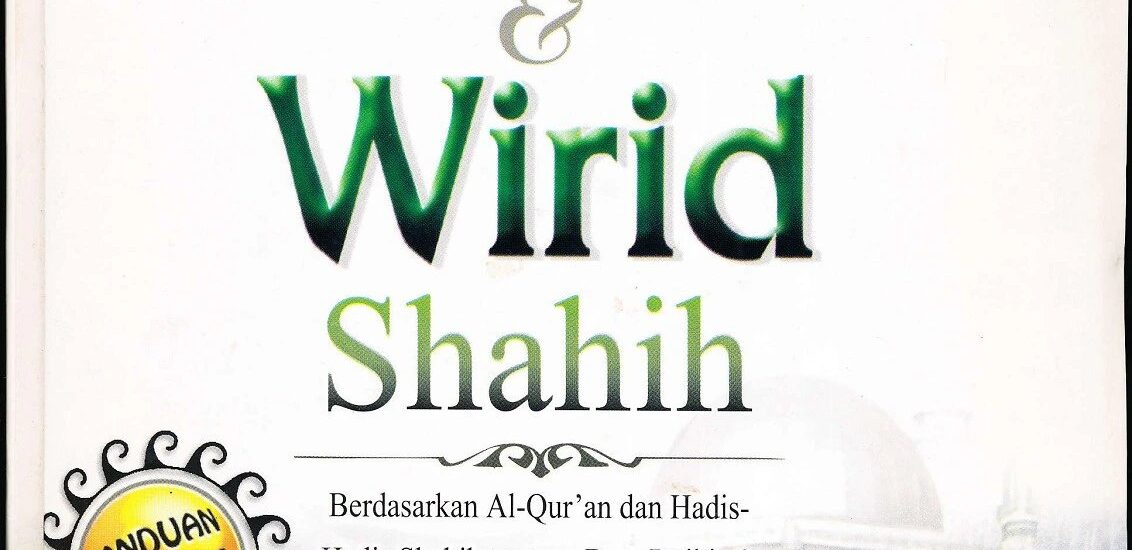The term that refers to “tuan junjungan” in Arabic is “Sayyid.” This word captures the essence of respect and honor in various cultural contexts. Exploring kata turunan dari bahasa arab yang berarti tuan junjungan tts opens a fascinating window into language and its nuances.
Understanding these terms not only enriches our vocabulary but also deepens our appreciation for the cultures connected to them. Join us as we delve into the significance and applications of these Arabic derivatives, shedding light on their important roles in everyday language.
Exploring Kata Turunan dari Bahasa Arab yang Berarti Tuan Junjungan TTS
In the world of language, the rich tapestry of Arabic vocabulary has a profound influence on many languages, including Indonesian. One of the fascinating aspects of Arabic is the derivation of words, known as “kata turunan.” When we talk about “kata turunan dari bahasa Arab yang berarti tuan junjungan,” it refers to words that convey respect, authority, and leadership—qualities encapsulated in the term “tuan junjungan.” This article dives deep into the linguistic roots, cultural implications, and various applications of these words.
The Linguistic Roots of ‘Tuan Junjungan’
To understand the phrase “tuan junjungan,” we must first look at its components.
– **Tuan**: This word translates to “Lord” or “Master” in English. It signifies respect and authority, often used to address someone with higher status.
– **Junjungan**: Derived from the Arabic term “Junūn,” which means “to be exalted” or “to be elevated.”
Thus, “tuan junjungan” signifies an exalted master or a person deserving of high respect. The Arabic language has several words that embody these meanings, and their study can provide insight into cultural contexts.
Arabic Derivation and Its Importance
Arabic is a root-based language, meaning that words are often formed from a set of three consonants that convey a particular meaning. Let’s examine how this applies to the words associated with “tuan junjungan.”
Root Words and Their Derivatives
The root word for “tuan junjungan” can be traced back to several Arabic roots. Here’s an overview of some relevant roots and their meanings:
– **ر-ب-ب (R-B-B)**: This root relates to the concept of “mastering” or “ruling.” Words derived from this root include:
– **Rab (رب)**: Lord or master.
– **Murabbi (مربي)**: One who nurtures or raises someone.
– **ع-ز-ز (A-Z-Z)**: This root signifies honor and respect. Derivatives include:
– **Aziz (عزيز)**: Mighty or respected person.
– **Izzah (عزة)**: Honor.
– **س-ي-د (S-Y-D)**: This root is associated with “lord” or “chief.” Key words include:
– **Sayyid (سيد)**: A term for ‘master,’ often used for respected figures.
– **Sayyidina (سيدنا)**: A respectful way to refer to our master, often used for prophets.
Each of these roots sheds light on the attributes associated with authority and respect in various cultural contexts.
Cultural Significance of ‘Tuan Junjungan’
Understanding “tuan junjungan” goes beyond language—it delves into cultural practices and values.
Respect in Indonesian Culture
In Indonesian society, respect plays a fundamental role. Titles like “tuan” are not mere formalities; they embody cultural values emphasizing hierarchy and respect for elders and leaders. The use of such terms in conversation denotes acknowledgment of someone’s status and contributions.
– In traditional settings, you might hear:
– **”Tuan Guru”**: Referring to a respected religious leader.
– **”Tuan Haji”**: Addressing someone who has completed the pilgrimage to Mecca.
The language reflects social structures that value authority and respect, bridging connections among individuals.
Expressions of Authority
When used in various professional and social contexts, “tuan junjungan” helps to foster an environment of mutual respect. For example:
– **In Education**: Teachers are often addressed as “tuan” to signify their role in shaping future generations.
– **In Religion**: Religious leaders are highly revered, and using respectful language reinforces their authority and spiritual guidance.
These expressions highlight the mutual respect ingrained in Indonesian culture and language.
Modern Usage and Adaptations
In contemporary society, the use of “tuan junjungan” can vary.
In Everyday Conversation
While the phrase “tuan junjungan” maintains its formal roots, informal adaptations often arise in daily interactions. In a relaxed setting, people may use variations or abbreviations that still convey respect, like:
– **”Tuan”**: Directly addressing someone in a polite manner.
– **”Junjungan”**: When referring to a leader or respected figure.
These adaptations showcase the language’s flexibility and the continuing importance of respect in interpersonal communication.
In Media and Literature
Literature and media often reflect cultural nuances and language use. Writers and filmmakers use expressions like “tuan junjungan” to portray characters’ relationships and social dynamics.
– **In Novels**: Characters may refer to their mentors or leaders using this title to illustrate reverence.
– **In Films**: The use of “tuan junjungan” can create a sense of gravity in dialogues involving authority figures, enhancing character development.
Through these mediums, language not only entertains but also educates about cultural values.
Learning Derived Words in Arabic
For language learners, understanding the roots and derivatives of words like “tuan junjungan” can greatly enhance vocabulary and comprehension.
Common Derived Words
Here are some commonly used Arabic-derived words in Indonesian, illustrating the influence of Arabic on the language:
- Imam (إمام): Leader of prayers or a religious guide.
- Shari’ah (شريعة): Islamic law derived from the Quran and Hadith.
- Masjid (مسجد): Mosque, a place of worship.
- Khalifah (خليفة): Caliph, a leader in the Muslim community.
These words are frequently used within religious and social contexts, reflecting their deep roots in Arabic culture.
Effective Methods for Learning
When learning Arabic-derived vocabulary, consider the following strategies:
– **Flashcards**: Create flashcards with the original Arabic word on one side and the meaning/usage on the other.
– **Practice Conversations**: Engage in conversations using these words to reinforce memory and understanding.
– **Cultural Immersion**: Attend cultural or religious events where these terms are used frequently to see them in context.
Learning through context helps embed the words in your memory, making them easier to recall.
Kata turunan dari bahasa Arab yang berarti tuan junjungan encapsulates more than just a linguistic translation. It highlights the importance of respect, authority, and the rich cultural practices intertwined with language. Exploring the roots, derivatives, and cultural significance can deepen our appreciation for these words and the values they represent. By understanding, using, and respecting these terms, we contribute to a broader connection among cultures that honor heritage and communication.
Namatin TTS ASLI #9 – Kunci Jawaban 91-100
Frequently Asked Questions
“`html
What is the significance of the term ‘tuan junjungan’ in Arabic?
‘Tuan junjungan’ translates to ‘master’ or ‘lord’ in Arabic, reflecting a position of respect and authority. This term emphasizes the social hierarchy and the honorific nature of interpersonal relationships in Arabic culture.
How does the understanding of ‘tuan junjungan’ differ across cultures?
The concept of ‘tuan junjungan’ varies in interpretation depending on cultural context. In some cultures, it embodies a deep sense of respect and loyalty, while in others, it may represent a more formal title without personal connection. Understanding these nuances is crucial for proper usage.
Can ‘tuan junjungan’ be used in modern contexts?
Yes, ‘tuan junjungan’ can still be relevant in modern contexts, particularly in formal settings or when addressing someone in authority. It signifies respect and maintains its traditional significance while adapting to contemporary communication styles.
What are some derivatives of the word ‘tuan’ in Arabic language?
In Arabic, derivatives of the term ‘tuan’ include words like ‘sidi’ and ‘sayyid’, which also convey meanings associated with respect and authority. Each term carries its own nuances and is used in different contexts.
How do honorifics like ‘tuan junjungan’ influence communication?
Honorifics such as ‘tuan junjungan’ significantly shape communication by establishing social dynamics. They convey respect and recognition, influencing how individuals interact with each other based on their societal roles.
What role does ‘tuan junjungan’ play in Islamic teachings?
In Islamic teachings, ‘tuan junjungan’ often reflects the relationship between a leader and followers, emphasizing qualities such as justice, compassion, and guidance. This concept reinforces the moral responsibilities of those in positions of authority.
“`
Final Thoughts
The term ‘kata turunan dari bahasa arab yang berarti tuan junjungan tts’ reflects a deep connection to cultural and linguistic roots. Understanding these derived words enriches one’s knowledge of the language and its nuances.
Exploring these terms can enhance comprehension and appreciation for the origins of common expressions. Engaging with such vocabulary opens avenues for deeper discussions and analyses within the Arabic language context.






